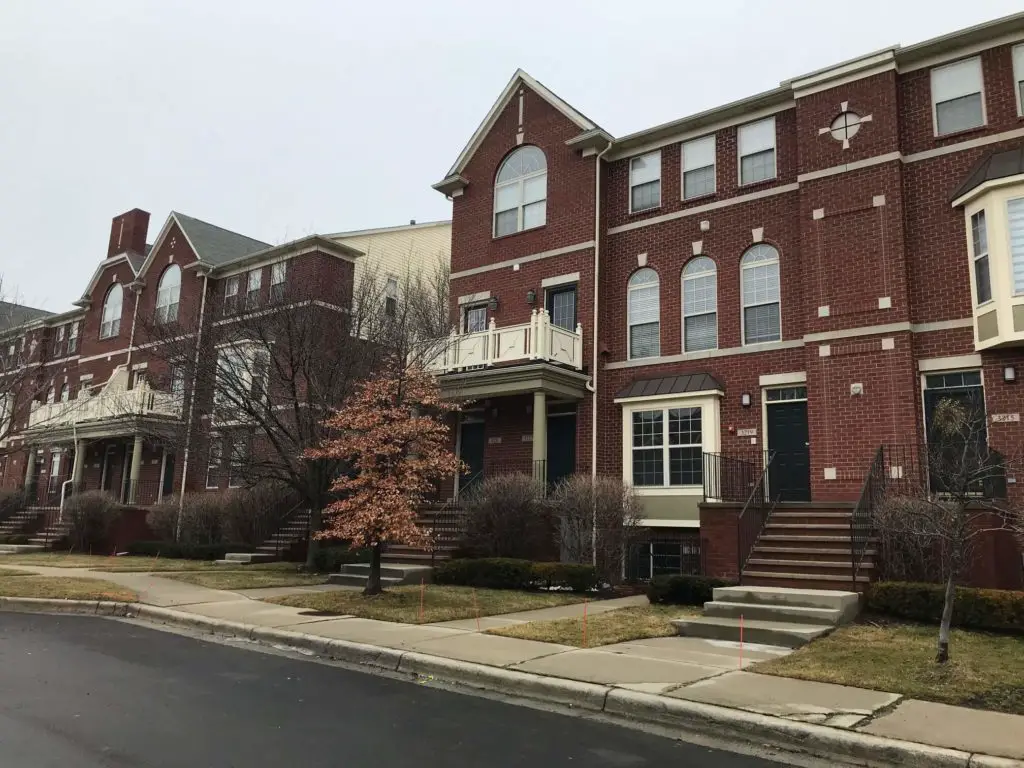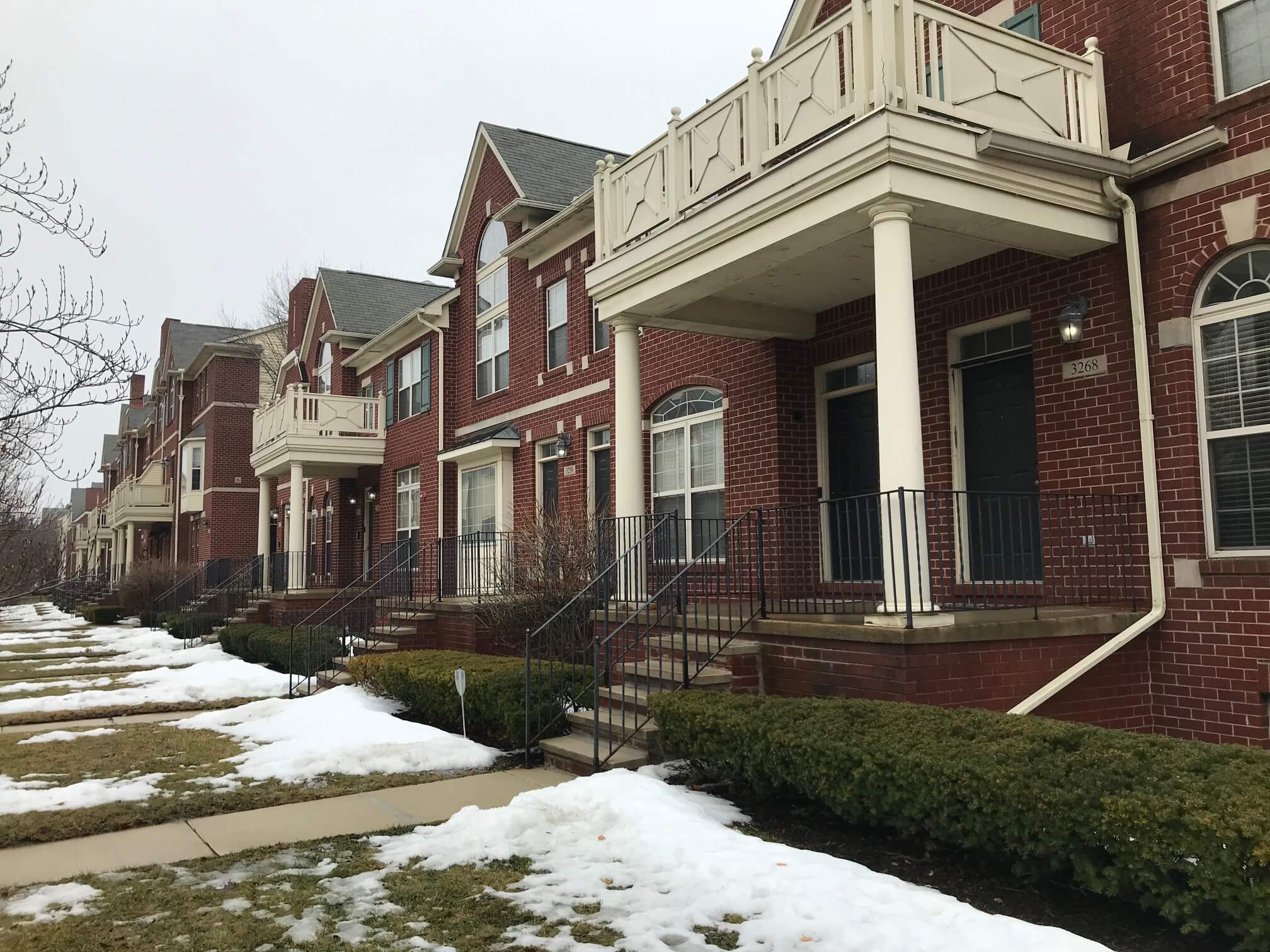For most people, 50k may not seem like enough money to venture into real estate. The general misconception is that investing in real estate requires hundreds of thousands of dollars. Most potential investors shy away from it even when they have enough money to get started.
There are several ways to realistically invest 50k in real estate, though; you just need to do it with enough forethought. These include real estate syndicates and crowdfunding, fixing and flipping property, turnkey properties, rental properties, REITs, and real estate partnerships.
Read on for details on how you can get started in real estate with just 50k using the above means.
Invest Through Real Estate Syndication and Crowdfunding
This is one of the best ways to invest 50k in real estate when you don’t want to be involved too much in the project you’re helping fund. Better still, a single project may not even take up the entire 50k.
Technically, there isn’t much difference between real estate syndication and crowdfunding. They’re both steps involved in getting real estate investors to pool together financial resources to fund large projects that they might not be able to afford individually. There are a lot of low risk ways to invest in real estate crowdfunding for investors.
Crowdfunding usually comes before syndication and refers to the process of sourcing real estate investors with shared interests to contribute towards a larger, predetermined investment deal. More often than not, this happens online. On the other hand, syndication begins when an investor agrees to the terms of an investment deal and signs over their desired amount of contribution.
With crowdfunding, you can actually invest via a website (Fundrise, Origin Investments, and RealtyMogul, just to name a few) and never have to visit the project site. That’s because a crowdfunding deal is usually created by an individual referred to as a sponsor. This person oversees the purchase of the property, leasing, management, financing, and disposition when it’s time to sell.
Investing in real estate through crowdfunding and syndication can be advantageous and disadvantageous in several ways. Let’s review them below.
Pros of Real Estate Syndication and Crowdfunding
The most prominent advantages of this form of real estate investment include:
- Both forms of investing in real estate don’t require much capital. In fact, you can invest your $50,000 in more than one project. We even have investors who start with as little as $500, but $1000-$10000 is usually the average and a great place to start if you want substantial returns.
- Both ways of investing are passive income earners. Since the sponsor handles everything from development and management to the sale, you won’t have much to do with the project you choose except for funding and collecting your earnings. Crowdfunding is one of the best passive income ideas in real estate.
- Crowdfunding facilitates portfolio diversification. Since each project’s minimum capital requirements aren’t prohibitive, you can easily diversify your portfolio by investing in multiple properties. This spreads your investment risk such that in case things go south with one of your investments, you can rely on the rest to recover the loss.
- Crowdfunding allows you to invest in geographical locations that would otherwise be out of your reach. Not only does this further help in portfolio diversification, but it also allows you to take advantage of location-specific upturns in real estate markets around the world. With traditional methods of real estate investment, logistics might get in the way of such flexibility.
- Crowdfunding eliminates the entry barriers you’d experience when investing in real estate traditionally. And, it’s not just the capital-related entry barriers: you no longer need the connections you’d require to access properties when investing via traditional means.
Cons of Real Estate Syndication and Crowdfunding
Despite the above selling points, investing via real estate crowdfunding and syndication does come with its fair share of drawbacks. These include:
- Crowdfunded investments are illiquid. In simpler terms, this means such investments can’t be quickly turned into cash in case of an emergency or the need to take advantage of rising property values in a particular market. That’s because it usually takes some time before a buyer can be lined up, and sometimes the property value can drop in that period.
- You have little control over your investment. If it gives you peace of mind to know and have control over the nitty-gritty details of each property you put your money into, real estate syndication and crowdfunding may not be the right way to invest for you. Unlike traditional forms of real estate investment, you have little say when it comes to developing and managing the property you invest in via crowdfunding.
While this can be a benefit for some investors, having the ultimate control over real estate projects can sometimes make it easier to get the desired returns. This is especially true for investors who know their craft when it comes to property development and management.
The bottom line is that real estate crowdfunding can be a great way to get a taste of the real estate market when you don’t want to risk too much money.
If property liquidity and control over any property you invest in are top priorities for you, keep reading for more ways to make money off a 50k investment in real estate.
Fix and Flip Property
Another creative way to invest $50k in real estate would be to buy property in a distressed condition, fix it up, and then sell.
Sure, not many properties will go for 50k in the current market. However, that amount may be able to cover the down payment and the closing costs, and probably some of the repairs. It all depends on how good you are at sniffing around for below-market property in areas such as bank REO departments, auctions, and distressed sellers.
Want an example of how you can invest 50k in real estate by fixing and flipping property?
Picture this: after a bit of research, you come across a foreclosed investment property whose actual market value is $200,000. But thanks to its distressed condition, you manage to get it for a cut-price of $150,000. Usually, you’d require a down payment of about 20% (sometimes less, depending on the lender) of the property price for an investment property, so $30,000 goes to that. From your initial 50k, you’re left with $20,000, which you then allocate to repairs.

At the end of the day, you’ll have bought real estate for cheap, saved on the down payment, and invested the savings back into the property by allocating it to repairs.
So now you own property worth $200,000, but you only spent $50k on the down payment and repairs. After renovations, you could flip it for its original market value ($200,000) or even more and make a profit. When you convert $50,000 into capital equity, you can profit.
As you can see, fixing and flipping property is one of the best ways to make quick money through real estate as long as you can secure an insured non-residential grant deed for property. But while you can invest as little as 50k in real estate with this kind of strategy, keep in mind that it comes with a much higher risk than many other ways of investing in real estate. As such, you’ll want to do enough market research before venturing into it.
You’ll also want to keep the total sum of repairs, purchase price, closing costs, and any other costs less than 80% of the property’s value. This way, you’ll give yourself the best chance of making a decent return.
When you have finished one flip, you can roll the profits into your next property to flip. You can use a 1031 tax deferred exchange to maximize your profits into your next project.
Invest in Turnkey Property
Turkey properties can be another great way to invest 50k in real estate if you’re a passive investor looking to avoid the hassle of rebuilding the property. Since it also involves the least amount of work, it’s one of the best options for a novice real estate investor. All you have to decide is mortgage banker vs. mortgage broker for your finances.
To invest in a turnkey property, look for a reputable turnkey company with several rental properties under its belt. To play it safe, ensure that the property you’re eyeing is already generating rental income (i.e., it should already have tenants). Next, use your 50k to settle the down payment, borrow the remainder from your preferred lender, and buy the property.
Investing in turnkey properties is a great way how to make $2,000 in a month almost passively.
Once you acquire ownership, the turnkey company will keep managing the property for you, meaning you won’t have to deal with the hassles of being a landlord. And since the property will already generate rental income, there’s little risk of failing to secure tenants for your property.
While it might seem like a breeze to invest in turnkey properties, they do come with two major caveats. Such properties tend to be priced higher than they would cost upfront, and it’s easy to end up with an overpriced buy, especially if you’re not familiar with the real estate issues and prices in a particular area.
Also, there are often incentives for turnkey companies to have repairs be more frequent than necessary, mainly because they make money off that in the form of repair and/or management fees. To avoid falling into this trap, ensure you do enough research before settling on a particular turnkey company.
You can get a mortgage loan from a foreign bank to manipulate debt instead of looking for profits from within the property itself.
Invest in Rental Properties
Another way to invest 50k in real estate without risking too much is through rental property. Even if you choose to invest solo (i.e., without partnerships or syndicates), 50k is more than enough to get you started. You may need to determine the rest of your financing and how to get a mortgage loan, but 50k can be used as a down payment.
In fact, this amount may cover down payments for two rental properties provided they’re priced between 100k and 120k. This could be a duplex, a studio apartment, a single or multi-family property, or simply two regular apartments.
Suppose you can get your hands on a fourplex, duplex, or a multi-unit, even better. That’s because, with such property, you can leverage your 50k investment. What this means is that you can live in one of the units and then use the rental income from the rest of the units to pay your expenses (or at least a part of it) and the mortgage (which you’ll probably need to cover the rest of the payment after using the 50k as a down payment). Living in a multiunit and using all of the rental income is a great way to pay off your mortgage fast which will allow you to purchase more rental properties.
Another way to leverage your 50k investment in rental property would be to buy a property that needs repairs as you would with the fix and flip strategy discussed earlier. But instead of selling right after remodeling, you let and refinance the property and then use the rent to pay the mortgage. You can even take it a notch higher by leveraging the equity you gain from this move to investing in a different property.
The best advantage of rental property investing is you can use passive income to qualify for a mortgage and buy more properties.
Invest via REITs
Real Estate Investment Trusts (REITs) are public corporations that own and manage the income-generating property. Typically, such companies invest in a particular class of real estate assets like retirement, industrial, residential, and healthcare properties.
With REITs, 50k is more than enough to get you started. In fact, you can invest half that amount. That’s because instead of investing in the actual property (like you would through crowdfunding and syndication), you invest in the stocks of a REIT company. Thus, the amount of money you can invest can be as little as the price of each stock you purchase. Investing in REITs is a creative way to make money investing.
The main benefit of investing in real estate through REITs is liquidity. As long as the market is open, you can buy or sell REIT shares online at any time. There’s also the fact that you gain exposure to a broad range of real estate in different markets.
Another advantage of investing with REITs is the sheer number of options at your disposal. Such companies come in so many forms, namely public-exchange traded, public non-traded, and private REITs.
The liquidity, regulatory requirements, and minimum capital requirements vary with each company type, so you might want to do thorough research before settling on a particular option. Some types are high-risk, while others are low-risk investments. While the potential returns in the former may be tempting, you’ll be better off with the latter if you’re just getting started in real estate.
Perhaps the only downside to investing in real estate via REITs is that the returns are usually low. To paint a clearer picture, AvalonBay (one of the most prominent residential REITs) provided a Return on Investment (RoI) of just over 4% in the second quarter of 2020.
Invest Through Real Estate Partnerships
Real estate partnerships can be as simple as agreements between a few people or complex structured deals involving many partners with varying capital contributions. Due to this flexibility, you can invest as little as 10k and still make some money off real estate, meaning the 50k you probably have at hand may be more than enough.
Perhaps the biggest advantage of investing through partnerships is that it can unlock opportunities you might not have had access to if you went solo. For instance, by pooling financial resources, you might be able to target larger-scale real estate properties or cooperative housing projects that you may not be able to afford with your 50k investment. Generally, investing large-scale in real estate leads to better returns, among other benefits.
Investing in real estate through partnerships can also grow your knowledge of the industry, especially if your partners have more experience than you. And if you’re the more experienced party, some partnerships may allow you to contribute your time and skill in exchange for some of the proceeds.
- For instance, if you’re an experienced real estate agent and have contributed 50k as capital, you can get paid extra to find and negotiate real estate deals before they go public. In return, you’d be helping the partnership secure property on the cheap.
Additionally, partnering with an experienced investor(s) can be a great way to minimize losses because chances are you’ll make fewer mistakes (which often lead to losses). You’ll also have the chance to split the workload of planning and managing the venture among the partners, which can free up valuable time so you can focus on other investments. You can hire an unlicensed real estate assistant to help you with some of the day-to-day administrative tasks.
Lastly, you can also leverage your credit (provided it’s great) to help finance some deals for the partnerships. This kind of arrangement may come in handy when you don’t have much capital to contribute upfront because it means you’ll get compensated extra for bearing more risk to help fund a particular deal. Provided everything goes as planned, you can even re-invest what you make from such an arrangement to bump up your share of future earnings.
However, beware that staking your credit also gives your larger responsibility for the deal in question, and you could be left with bad credit if things don’t work out. Also, some lenders may insist on putting all the partners on loan to minimize their risk, so this may not always be possible.
Is $50,000 Enough to Invest in Real Estate?

You might think that $50,000 is not enough to invest in real estate and turn a profit. In all actuality, $50,000 is more than enough to invest in real estate for profit. By focusing on low income rentals and real estate assets that have a lower up front cost, you can turn a profit quickly.
There is a huge demand for public housing rentals right now. Most public housing authorities have a waiting list of available tenants. Becoming a section 8 landlord is a great way to build stealth wealth in real estate. While the units might not appreciate as quickly as a traditional single-family rental, you will have positive cash flow faster with a majority of the rent payment coming from the government and HUD.
Summing Up
That brings us to the end of today’s discussion. As we’ve seen, there are several ways to invest 50k in real estate; you just need to be crafty enough and know what best suits your financial situation.
In case you need a recap, we’ve identified real estate syndicates and crowdfunding, fixing and flipping property, turnkey properties, rental properties, REITs, and real estate partnerships as some of the best ways to invest 50k in real estate. Hopefully, you’ll find an ideal way to invest and grow your money from one of these. All the best!



